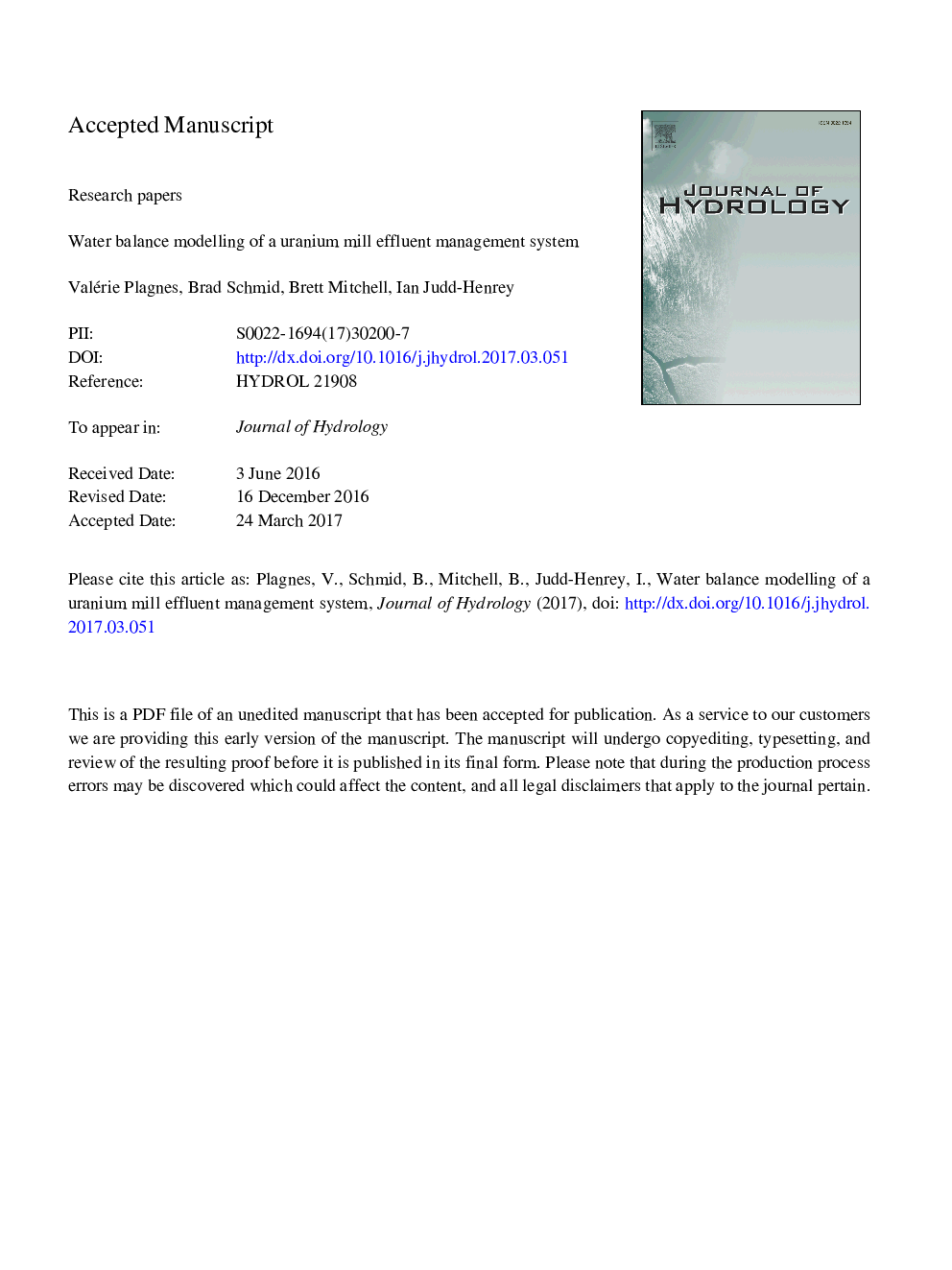| Article ID | Journal | Published Year | Pages | File Type |
|---|---|---|---|---|
| 5771018 | Journal of Hydrology | 2017 | 35 Pages |
Abstract
A water balance model was developed to forecast the management strategy of a uranium mill effluent system, located in northern Saskatchewan, Canada. Mining and milling operations, such as pit dewatering or treated effluent release, can potentially influence the hydrology and the water quality downstream of the operations. This study presents the methodology used to predict water volumes and water quality discharging downstream in surface water bodies. A compartment model representing the three subsequent lakes included in the management system was set up using the software GoldSim®. The water balance allows predicting lake volumes at the daily time step. A mass balance model developed for conservative elements was also developed and allows validating the proportions of inputs and outputs issued from the water balance model. This model was then used as predictive tool to evaluate the impact of different scenarios of effluents management on volumes and chemistry of surface water for short and longer time periods. An additional significant benefit of this model is that it can be used as an input for geochemical modelling to predict the concentrations of all constituents of concern in the receiving surface water.
Related Topics
Physical Sciences and Engineering
Earth and Planetary Sciences
Earth-Surface Processes
Authors
Valérie Plagnes, Brad Schmid, Brett Mitchell, Ian Judd-Henrey,
